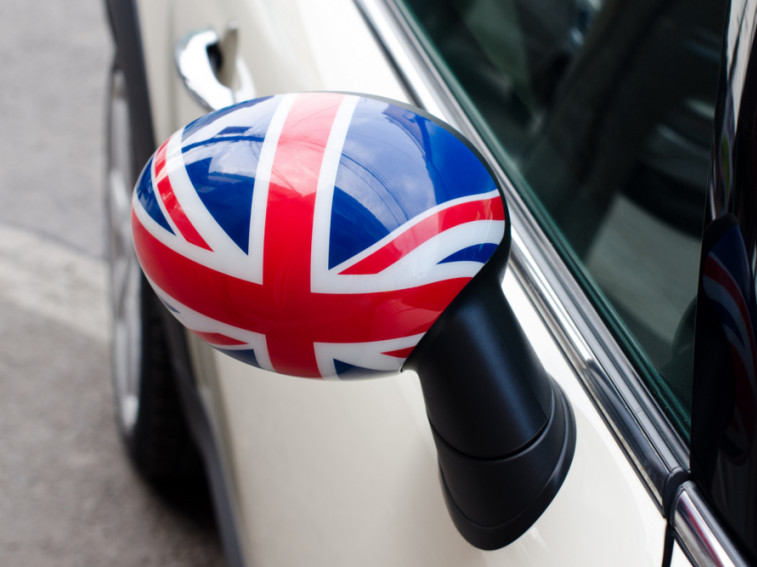It’s no secret that the British new car market hasn’t been exactly flying recently. (It’s part of the reason why the used car market has been thriving in its stead, with more people than ever using our online car auctions to save themselves hundreds or even thousands of pounds on seized and salvage vehicles.) Nissan and Ford are amongst the manufacturers who are scaling back their operations in the UK. So, what’s behind the stagnation of the new car market? (It’s a bit more than Brexit!)
Decline in demand
While a complete set of data isn’t yet available for 2019, we do know that in 2018, global car sales generally stagnated. This is chiefly because of a slump in demand in the world’s biggest global markets, including Western Europe, the United States, and especially China. Industry insiders say that the current trade war between China and the US definitely doesn’t help - Jaguar Land Rover, in particular, made a point of mentioning it when addressing their declining sales. And it’s possible that this is the start of a long term trend, because the future may also hold…

Fewer people opting for car ownership
New car technologies have been making a lot of headlines in recent years, and it seems like the industry’s evolving faster than ever. While good for consumers, though, many of these changes bring up a lot of challenges for car manufacturers. As driverless cars become more widespread, for example, more people could start choosing to share or rent their cars, saving themselves hundreds or even thousands in fuel and insurance, as opposed to the comparatively expensive option of individual ownership. For similar reasons, ride-sharing firms like Uber are also becoming a major thorn in the side of car manufacturers, some of whom (like Honda) are looking to bridge the gap by developing their own driverless fleets.
Emissions laws are getting stricter
Laws are changing both nationally and internationally, amid growing concern about air quality and environmental damage. The Ultra Low Emissions Zone in London is just one example of just such an initiative, as well as the government U-turn on diesel in recent years.
Again, while they’re positive changes for people and the planet, they pose a headache for car manufacturers going forward, especially since these laws are only likely to get tougher in future - from 2021, fleet manufacturers will be faced with significant fines if their fleets break upper emissions limits. It costs about €1000 more to build each new car, which has the probable consequence of making them even less attractive to buyers and making it likely that more people than ever will opt to save themselves hundreds of pounds by getting their next motor through online car auction.
Electric car sales aren’t quite buzzing
One method that manufacturers can pursue in the wake of these emissions laws is by improving their electric car offering. The trouble is that most manufacturers aren’t yet well-equipped enough to do that, and it’s going to require billions of euros worth of investment to get themselves to that footing. Many are diverting resources in this direction already, but they’re not quite there yet.

Compounding the issue is the fact that the market isn’t ready yet, either. The UK needs significant investment in the relevant infrastructure before it’s able to support a wider rollout of electric cars. Electric vehicles have limited range compared to petrol and diesel vehicles - many only as far as 100 to 120 miles - which immediately disqualifies them as unsuitable for intensive or long-distance journeys until a greater number of charging points can be installed to support them. Global sales of electric cars have leapt by 73% in the last year, with 1.3 million units sold. But that’s still significantly less than 5% of the global market, with 86 million cars sold total.
Brexit is looming on the horizon
When the results of the referendum came in back in mid 2016, one industry that certainly did not welcome the news was the new car sector, and they’ve been issuing suitably grim warnings about it ever since. A big part of the problem for British manufacturing plants is that as a nation, we rely heavily on components imported from the EU in order to build them, and once completed, many of these cars are shipped right back out again to be sold in the EU mainland. Whatever you think of Brexit, there’s no denying that it’s caused a lot of uncertainty with current and future tariffs, leaving much of the UK car industry stranded in economic no-man’s land for now.
However, the silver lining is that these elements are far less of a factor for the UK auction car industry, which means you can still find fantastic bargains on seized and salvage vehicles right here at RAW2K. Feel free to browse our inventory for ever-popular favourites from leading manufacturers like Audi, Peugeot and Renault, just to name a few - why not have a look around, and see what you can find?




